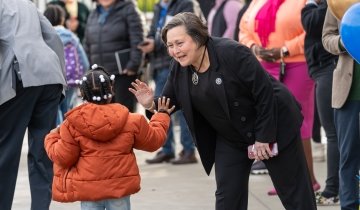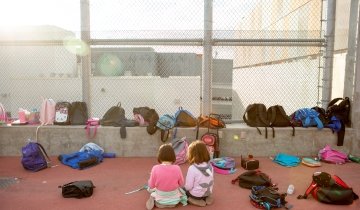Sean G. Warman MAT ’15 found ways to build his studies around his full-time job as a technical sergeant in the United States Air Force. He was born in Long Beach, Calif., and attended Los Alamitos High School.
When you enrolled at USC, you were already serving full time in the military. What made you decide to get your MAT?
I decided to teach for the same reason I decided to join the military: because I enjoy helping other people. When I transition to civilian life in the next few years, I’ll be excited to pursue a teaching career where I can continue to have the honor of serving my community every day.
Why did you select USC Rossier’s online program?
Taking classes, completing assignments and studying are hard enough on their own but become that much harder when you are serving in a job with nontraditional hours. Without the flexibility to take classes online, I could have never even considered pursuing my master’s.
"Going through this program is a transformational experience; it not only positions you to become a better teacher, but it changes you as a person."
—Sean G. Warman MAT ’15
USC not only has an online program, but one with a stellar reputation. The online learning experience is fantastic: no time is wasted, all classes are live and you get to share the experience with an incredibly diverse cohort. I went to class with students from Korea, China, England, Germany and Turkey. It was simply amazing.
How did your fieldwork experience impact your teaching practice?
Before work and on my days off, I completed my fieldwork at an elementary school in a socioeconomically distressed part of Southern California, where I had to confront the challenge of equality in education head-on. The experience was challenging, but extremely rewarding: I learned from those kids that every student is capable of critical discourse, and their only limitations are the educators’ assumptions and biases. As a teacher, it is my job to find ways to teach to a variety of learning styles rather than try to assimilate students to what I consider to be the best way to learn.
Where do you hope to take your teaching career now that you have graduated?
When my military career comes to a close, I would like to become a special education teacher. Professor Margo Pensavalle was instrumental in helping guide me toward this specialization; she was an incredible asset who really challenged me as a teacher and as a person.
Going through this program is a transformational experience; it not only positions you to become a better teacher, but it changes you as a person. Through my professors’ support and mentorship, I have gained the knowledge necessary to take on large tasks without feeling overwhelmed. I’m thankful for the opportunity to give back to my community while I serve my country and am excited to apply what I’ve learned in my own classroom.



